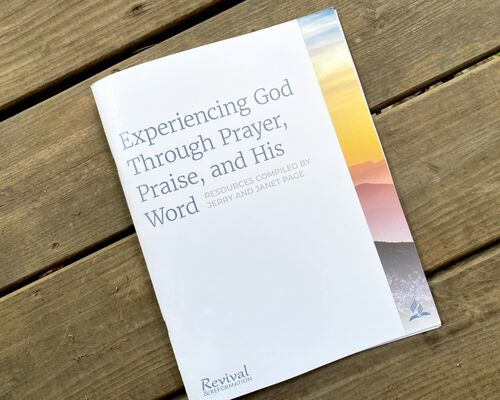Sacharja 13
Das Ende von Götzendienst und Prophetie
1 Zu der Zeit werden das Haus David und die Bürger Jerusalems einen offenen Quell haben gegen Sünde und Befleckung.
2 Zu der Zeit, spricht der HERR Zebaoth, will ich die Namen der Götzen ausrotten aus dem Lande, dass man ihrer nicht mehr gedenken soll; dazu will ich auch die Propheten und den Geist der Unreinheit aus dem Lande treiben.
3 Und so soll es geschehen: Wenn jemand weiterhin als Prophet auftritt, dann sollen sein Vater und seine Mutter, die ihn gezeugt haben, zu ihm sagen: Du sollst nicht am Leben bleiben; denn du redest Lüge im Namen des HERRN! Und es werden Vater und Mutter, die ihn gezeugt haben, ihn durchbohren, wenn er als Prophet auftritt.
4 Und es soll zu der Zeit geschehen, dass die Propheten in Schande dastehen, ein jeder wegen seiner Gesichte, die er weissagt. Und sie sollen nicht mehr einen härenen Mantel anziehen, um zu betrügen;
5 und jeder wird sagen: Ich bin kein Prophet, sondern ein Ackermann; denn ein Acker ist mein Besitz von meiner Jugend auf.
6 Und wenn man zu ihm sagen wird: Was sind das für Wunden auf deiner Brust?, wird er sagen: So wurde ich geschlagen im Hause derer, die mich lieben.
Der geläuterte Rest
7 Schwert, mach dich auf gegen meinen Hirten, gegen den Mann, der mir der nächste ist!, spricht der HERR Zebaoth. Schlage den Hirten, dass sich die Herde zerstreue. Dann will ich meine Hand wieder kehren zu den Kleinen.
8 Und es soll geschehen in dem ganzen Lande, spricht der HERR, dass zwei Teile darin ausgerottet werden sollen und untergehen, und nur der dritte Teil soll darin übrig bleiben.
9 Und ich will den dritten Teil durchs Feuer gehen lassen und läutern, wie man Silber läutert, und ihn prüfen, wie man Gold prüft. Der wird dann meinen Namen anrufen, und ich will ihn erhören. Ich sage: Er ist mein Volk, und er wird sagen: Der HERR ist mein Gott!
Die Bibel nach Martin Luthers Übersetzung, revidiert 2017, © 2016 Deutsche Bibelgesellschaft, Stuttgart.
Kommentar
“In that day there shall be a fountain opened to the house of David and to the inhabitants of Jerusalem for sin and for uncleanness” (13:1). What a grateful and encouraging vision!
Chapter 13 is a continuation of the previous chapter. In (12:10) it spoke about the Messiah being pierced. So in this chapter (13:1) the expression, “In that day” refers to the day when the Messiah was crucified, rather than the “day” at the end of time. As the Messiah dies as the sacrifice of God, and as people mourn over His death, the fountain of cleansing would be opened.
From the time of old, the idol worshippers have been the opponents of those of the true God. The false prophets were a hindrance to the ministry of God’s true prophets. This will be the way until the end. Jesus Himself warns us many times in Mt. 24 of false teachers and prophets and not to be misled by them. But the Lord of Hosts is promising here that the idols and the false prophets, and the unclean spirit which has been leading them astray, will be ultimately cut off from the land. Yes, Lord, we long for that day!
In verse 4 it speaks of converted prophets. But when we look at verses 5-6, they speak of the coming Redeemer. He is to be called a servant farmer from His youth, but then it describes how He will suffer. He will be wounded between His arms, meaning on His back. In the Gospels (Mt 27:26; Mk 14:65; 15:15; Lk 22:63; and Jn 19:1, 18) it tells us how they flogged Him, and how He was mocked and slapped. Verse 6 was quoted by Ellen G. White, among the verses from Isa 53, to describe the death of Christ as the Servant of God (AA 226).
All this happened as He was visiting the house of His friends, the house of David and the inhabitants of Jerusalem, which represent the human race. As predicted in verse 7, and foretold by Jesus citing this verse in Mt 26:31, when the Shepherd was smitten, all the flock of His disciples was scattered and ran away.
He came to open the cleansing fountain for their sin and rebellion. But they were so blind by their iniquity and covetousness, that they put Him to death. There were those who had the vested right to the Temple service and the religious system of that time, but they acted as enemies of their Lord. Let us remember that none of us have a right to anything we own. We are honored but only to be His stewards and servants. God is the Lord of all things.
It is amazing to see that most of the Scriptures were written more for us living at the end-time, than for anyone else in the history, even more than the prophets’ direct audience. This may apply to the last part of this chapter as well. The Lord will let the remnant people have trials and hardships, enough for them to give up the sin-driven worldliness and a desire for self-exaltation. Then we will call on His name and long for the cleansing power of His sacrifice. That’s when we will be His people and He will be our God. As much as we want to be called His people, God yearns for us to recognize Him as our God. When that happens, we will joyously say, “Yahweh is my God!”
Sook-Young Kim
Kyungpook National University
Sangju, South Korea





